Chronic kidney disease is one of the three leading causes of death in cats. If your cat has chronic kidney disease, nutritional support will be essential to the survival of his kidneys, and his own survival.
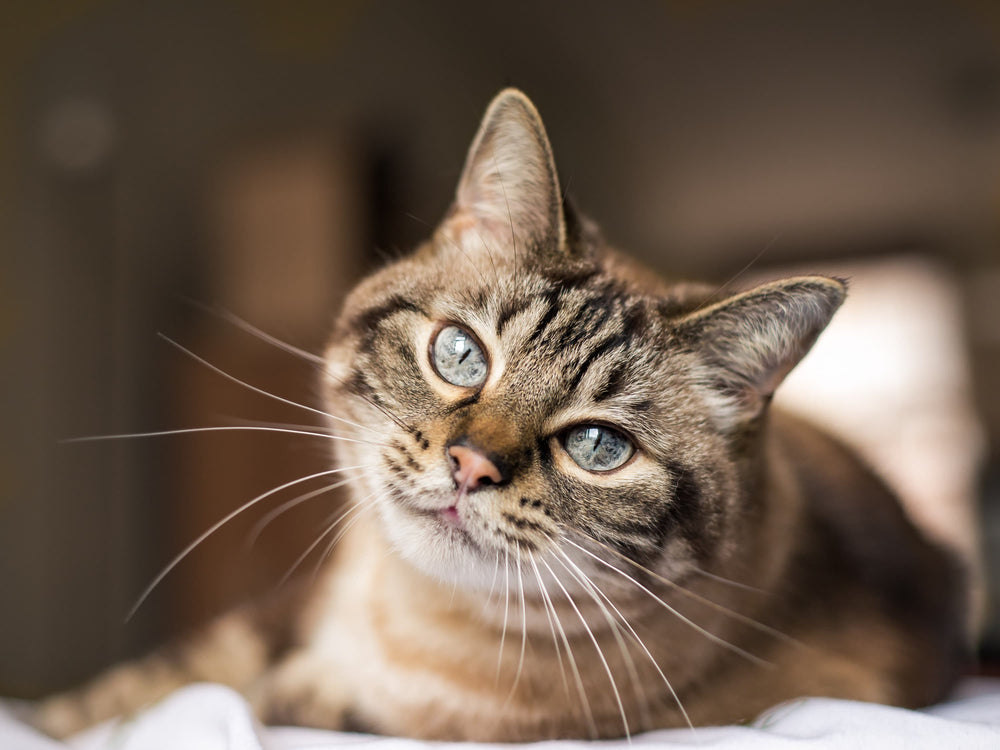
Chronic renal failure (CRF) in cats: what is it?
Renal failure is an irreversible pathology, a progressive loss of kidney function. Their major role is to regulate hydration and minerals, and to eliminate toxins produced by the body. Irrigated, they filter the blood and direct electrolytes (sodium, chlorine, potassium), water and many substances resulting from protein metabolism, such as creatinine and urea, to the urine. Chronic renal failure is a dysfunction of the renal tissue, of the kidney itself.
Chronic renal failure or acute renal failure in cats
In cats, there are two forms of renal failure: acute renal failure (ARF), which can occur suddenly and can be reversible, especially if treated quickly, and chronic renal failure (CRF), which is long-lasting, progressive and irreversible. CRF is the most common and mainly affects aging cats over 7 years old. This is what we will talk about in this article.
Whether acute or chronic, kidney failure in cats must be treated quickly and given appropriate treatment, recommended by a veterinarian. Treatment will depend on the severity of the symptoms, detected by the veterinarian via blood and urine tests. But in all cases, it will be essential to adapt the diet of your sick cat .
What are the symptoms of chronic kidney failure in cats?
As with most illnesses, you will notice a general deterioration in the health of the cat concerned: depression, diarrhea, vomiting, etc. Your cat will seem to be suffering. He may even lose interest in his games altogether, as he is usually very playful. A cat with kidney failure will also tend to drink a lot of water and more than usual.
Chronic kidney failure can also lead to mouth ulcers, so it is also possible that your cat will lose its appetite and therefore lose weight.
What causes chronic kidney failure in cats?
An unsuitable diet
Our cats' diet plays a crucial role in their health. Food that is too rich in carbohydrates can, in particular, increase the risk of being overweight, obese and diabetic. Food that is too rich in phosphorus can increase the risk of kidney failure! Scientific studies are all clear: phosphorus, and in particular soluble phosphorus (soluble phosphorus salts, phosphoric acid, sodium phosphate) is directly toxic to the kidneys.
Phosphorus is present in many food sources, in grains and other plants, and of course in bone and therefore in animal carcasses, cartilage and bones.
Aging and genetic causes
In addition to diet, chronic renal failure in cats can result from a congenital malformation. Many breeds of cats are indeed predisposed to polycystic kidney disease, such as the Maine Coon, the Persian, the Ragdoll or the Birman.
Finally, age can also be linked to the disease - with the kidneys becoming more fragile over time.
Diagnosis of chronic renal failure
In the event of an acute renal failure crisis, it is necessary to consult your veterinarian as soon as possible, so that your little companion can be hospitalized with a drip in order to restore the body's balance.
To detect chronic renal failure, your veterinarian will perform various tests. This will be based on blood creatinine and phosphorus, and on urine protein and creatinine content.
It is thanks to blood and urine samples that he will be able to grade your cat's illness and adapt the treatment accordingly. Certain medical treatments can be added depending on the case: for example, against hypertension or the addition of potassium.
But whatever stage your little cat is at, managing its chronic renal failure will absolutely require an appropriate diet.
Suitable diet for cats with kidney failure
Nutritional needs of cats with renal failure
The diet of a cat suffering from kidney failure must first and foremost cover all of its nutritional needs.
Regardless of their health status, our cats must find in their diet proteins (of high quality), lipids and essential fatty acids, trace minerals and vitamins (A, D3, E, and all those of group B) and a little fiber for their intestinal transit. A cat with renal insufficiency will need all these nutrients, but its food must be specifically adapted to its pathology.
Chronic renal failure in cats: how to choose the best food for your sick cat?
Chronic renal failure (CRF) in cats is a very serious condition that, even with a lot of love, cannot be cured. Once damaged, the kidneys can no longer recover. The progression of the disease, if caught in time, can however be slowed down thanks to an adapted, balanced and above all quality diet, allowing to prolong both the comfort and life expectancy of our sick cats.
A diet low in phosphorus
In case of renal failure, the element that really needs to be restricted is phosphorus. As stated above, phosphorus is the number one enemy of the kidneys!
When the kidneys are diseased, they eliminate phosphorus less well, and in cats suffering from renal failure, even at the early stage, providing less phosphorus helps maintain renal function.
To provide low phosphorus while providing excellent quality proteins with a well-adapted amino acid profile, cats suffering from kidney disease can be offered a diet rich in muscle animal proteins, which are highly digestible and have a very low phosphorus/energy ratio.
A diet rich in fatty acids
A very high nutritional intake of long-chain omega-3 fatty acids ( EPA + DHA ) promotes blood fluidity, glomerular filtration, as well as good vascularization of the kidneys.
A wet diet
Hydration is essential for the elimination of waste by the kidneys. Cats with chronic kidney disease, from the earliest to the most advanced stages, are prone to dehydration. Cat food, and especially cat food for renal failure, is recommended to allow for substantial water consumption.
As a guide, pâté contains on average 75% water compared to 10% for kibble. There are of course cat kibbles specifically formulated for this pathology, but they will never provide the necessary hydration for a sick cat.
To learn more, do not hesitate to consult our article on the diet of cats suffering from chronic renal failure . We share with you all our advice and that of our Veterinarian Dr. Géraldine Blanchard.
Ziggy Cat Food for Cats with Chronic Kidney Failure
At Ziggy, we take care of our cats at all the crucial stages of their lives: from their very first months to senior age, through adulthood and in the event of urinary, renal or diabetic diseases with our veterinary cat food.
Formulated by Veterinarian Dr. Géraldine Blanchard, Ziggy VET IRC cat food for heart failure is specifically designed to support kidney function in cases of chronic kidney disease: this therapeutic dietetic food is very low in phosphorus to preserve kidney function, very rich in EPA/DHA, long-chain omega 3, to help slow the progression of CKD, while promoting a greater appetite. Composed of highly digestible and assimilable muscle animal proteins, and with an amino acid profile well adapted to cats, it helps preserve muscle mass, immune defenses, and the appetite of cats suffering from chronic kidney disease.
Are Ziggy cat kibbles suitable for cats with renal failure?
As mentioned above, kibble does not provide all the hydration our cats need, even if it is formulated for chronic renal failure. It is of course possible to offer kibble to your feline, as long as this contribution is a minority in its daily ration. Our Ziggy cat kibble is not specifically formulated for cats suffering from chronic renal failure, but it is formulated with high-quality proteins and contains a low level of phosphorus.
How much pâté and/or kibble should I give my cat suffering from kidney failure?
The amount of food to give your cat depends on several factors: its physical activity (indoor or outdoor cat), its age, the type of food you offer it (only pâté or a mixed diet), but also and above all its optimal weight. Your little feline's illness does not affect the amount of food to give it each day.
To know the exact quantity to offer your mustachioed man, we offer a personalized ration calculator on our site.
How many meals per day for a cat with kidney failure?
Whether they are sick or not, all our cats must have at least 4 meals during the day . And this for 3 reasons:
- For their overall health. It is necessary to limit the daily quantity to its strict need to avoid the risks of overweight and obesity.
- For their urinary health. Splitting up your meals promotes good urinary health. After
a meal, urine tends to become more alkaline. This is due to urinary compensation for the loss of gastric acids secreted during digestion. The larger the meal, the more alkalinization increases, thus promoting the formation of urinary crystals.
- For their mental health. Remember that our cats are little nibblers. In the
By nature, they hunt and consume an average of 16 small meals per day. If your cat only eats 2 times per day, he might feel frustrated.
How to prevent kidney failure in cats?
It cannot be said enough: a healthy and quality diet is the key to a healthy cat. Above all, it must be:
- Rich in quality animal proteins!
- Low in carbohydrates
- Low in phosphorus to preserve your cat's kidney health
- And contain a limited amount of fat.
When it comes to the question of kibble or pâté for your cat, we can only recommend that you opt for wet food as much as possible. This has many benefits for your pet's health. It is wet, and therefore on average 4 times less caloric than kibble (for an equivalent quantity); it allows you to eat in sufficient quantity, to cover your appetite well.
It is also very rich in water, providing volume in the stomach while filling the water needs of our little felines. It allows our cats to eat water, and ultimately consume 50% more water than when they eat dry and drink on the side! This is interesting for producing less concentrated urine.
A cat fed mainly with pâté will also have less risk of developing diabetes, excess weight, and obesity.
At Ziggy, our cat food meets all these criteria. Complete, they are rich in animal proteins of very high nutritional quality (muscles and noble offal) low in carbohydrates (less than 2% for our food), with a reasonable mineral content (and not forced), balanced and rich in essential fatty acids. For healthy and happy cats. 💛


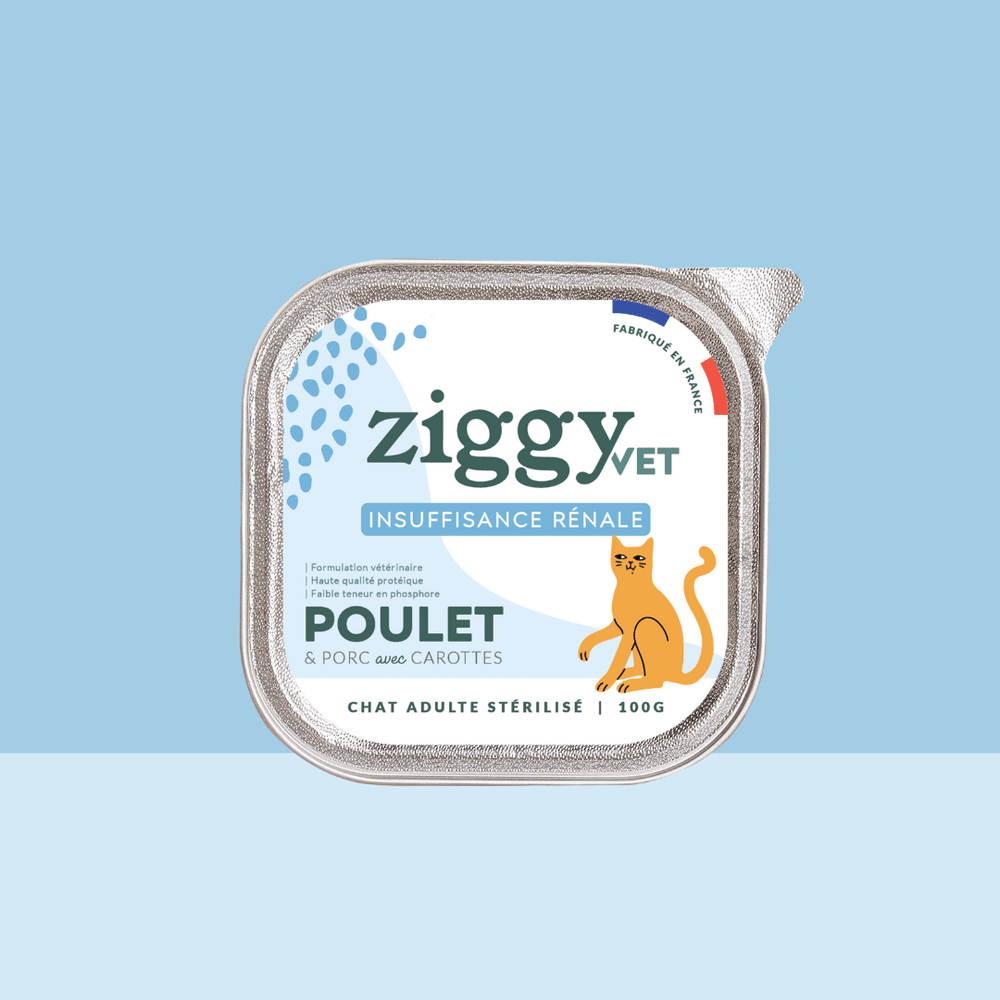
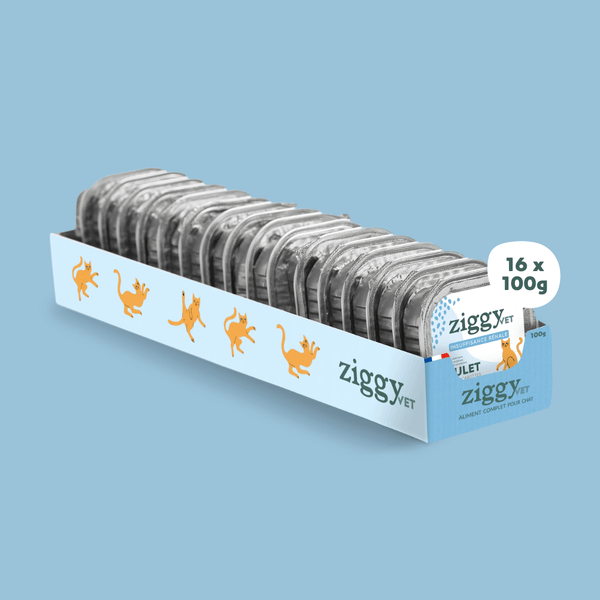

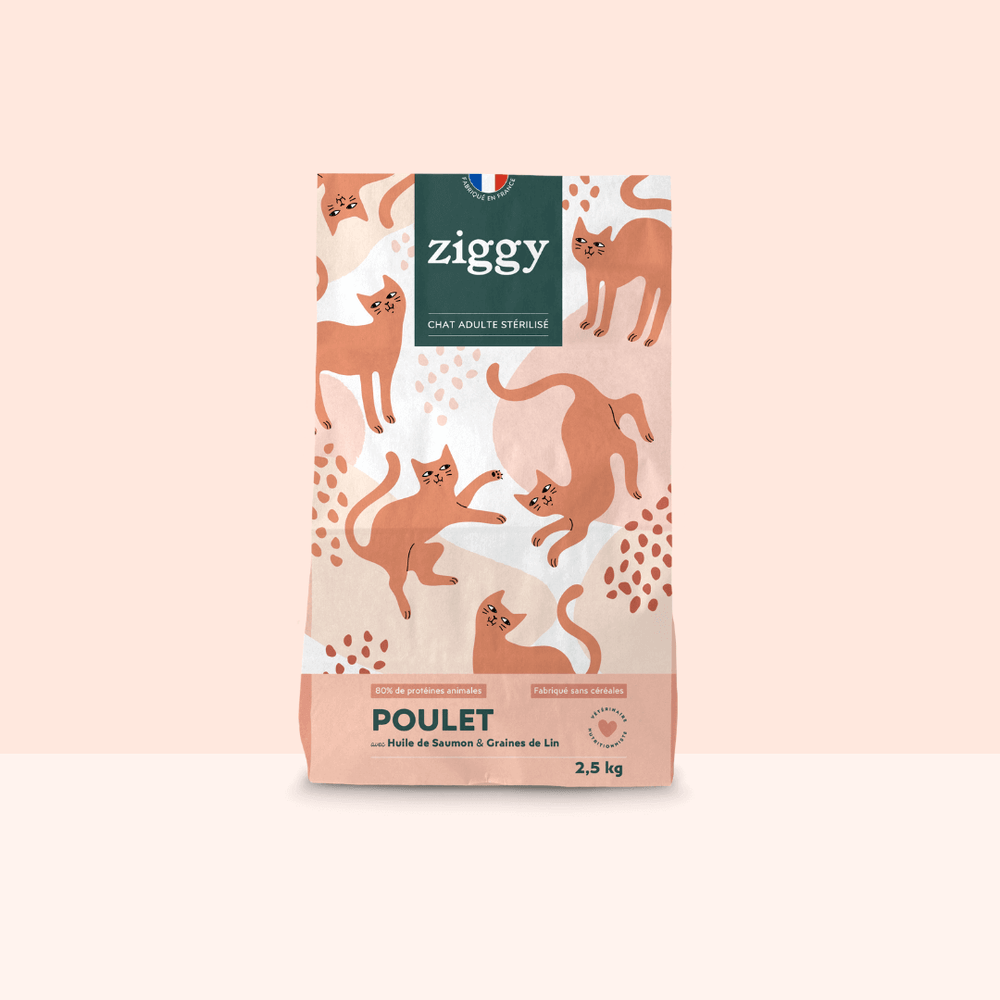
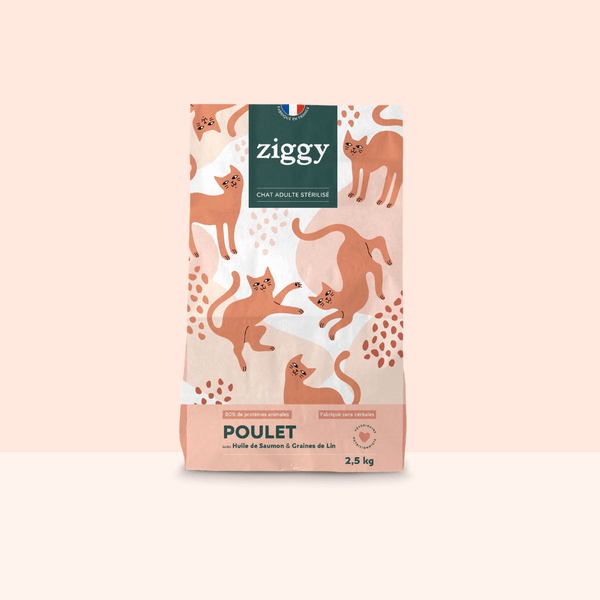

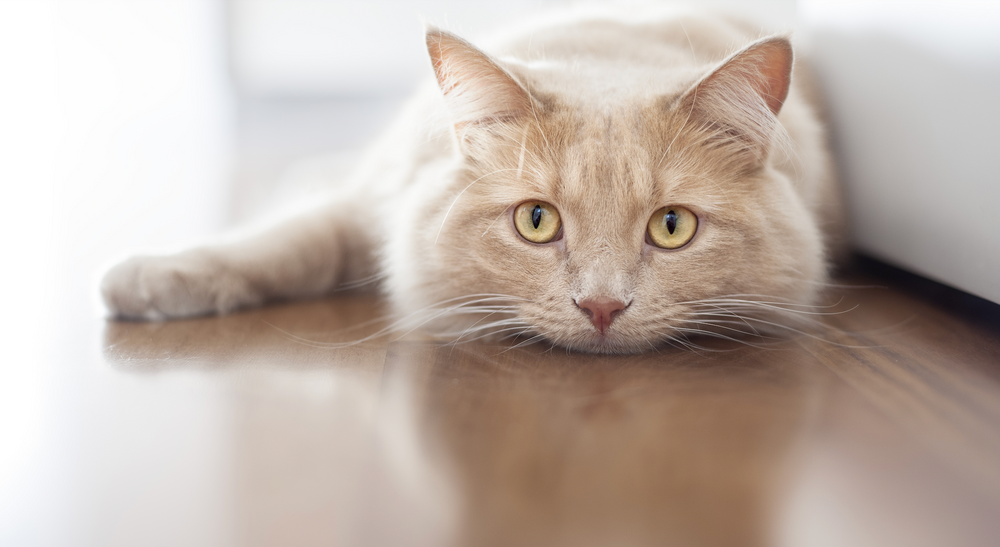
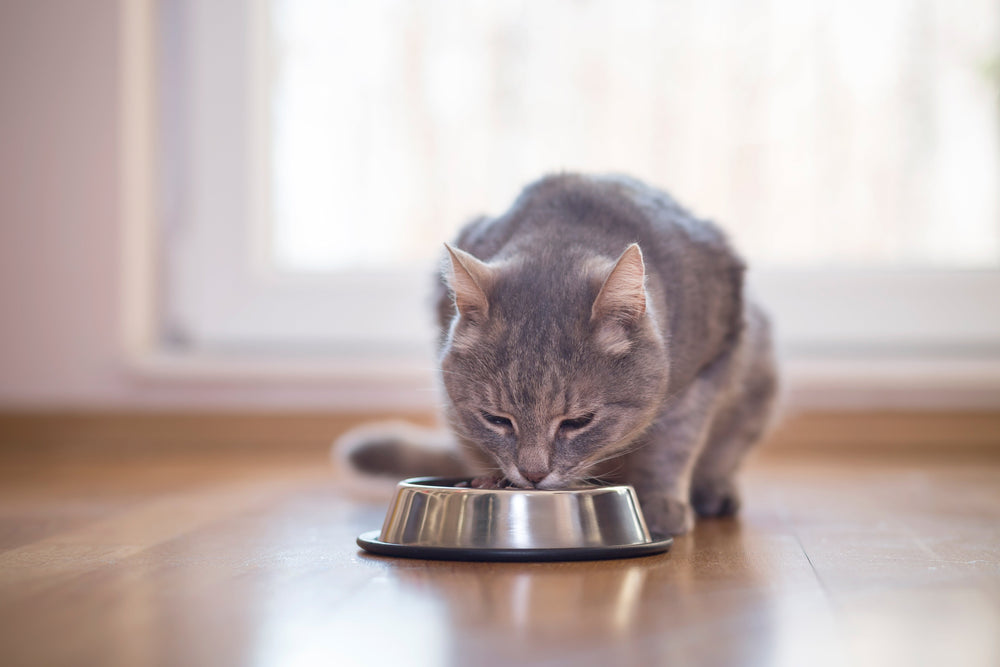
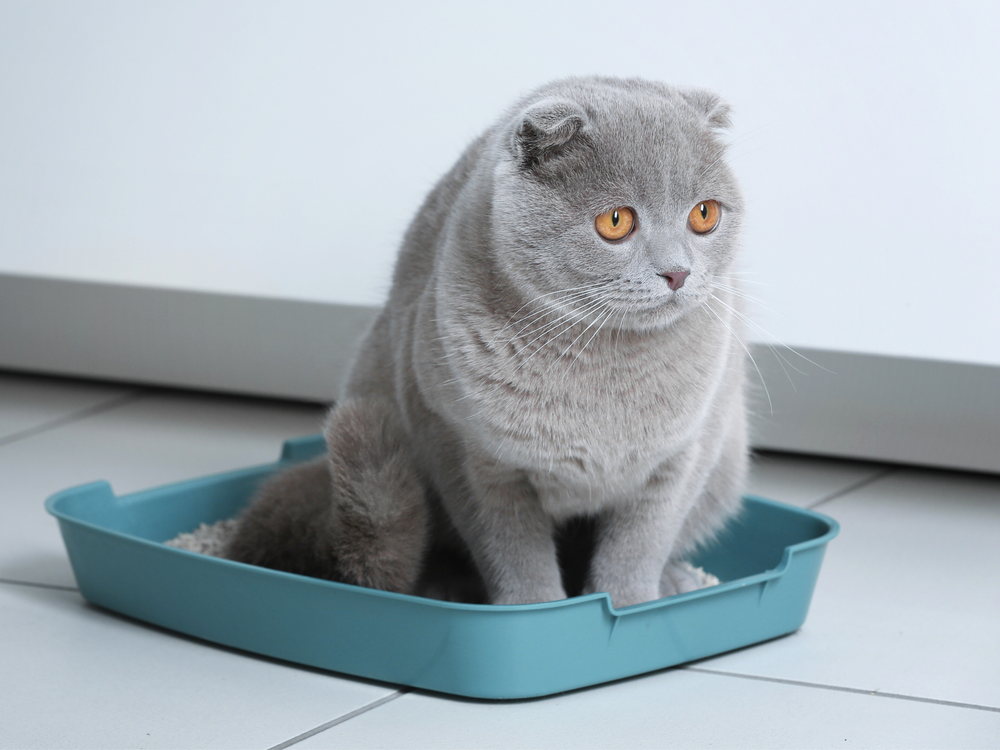
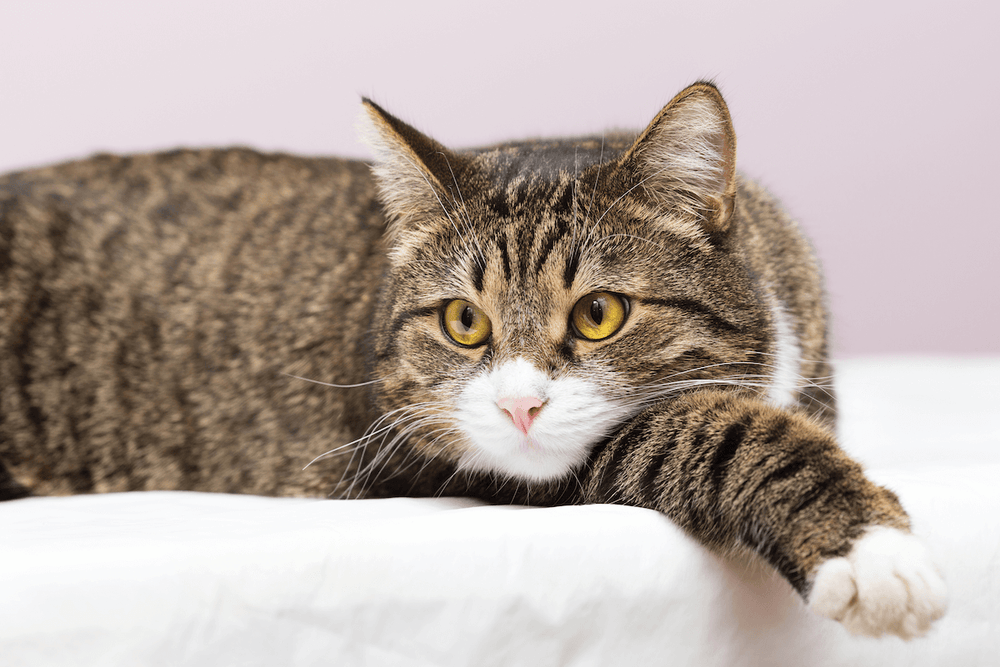
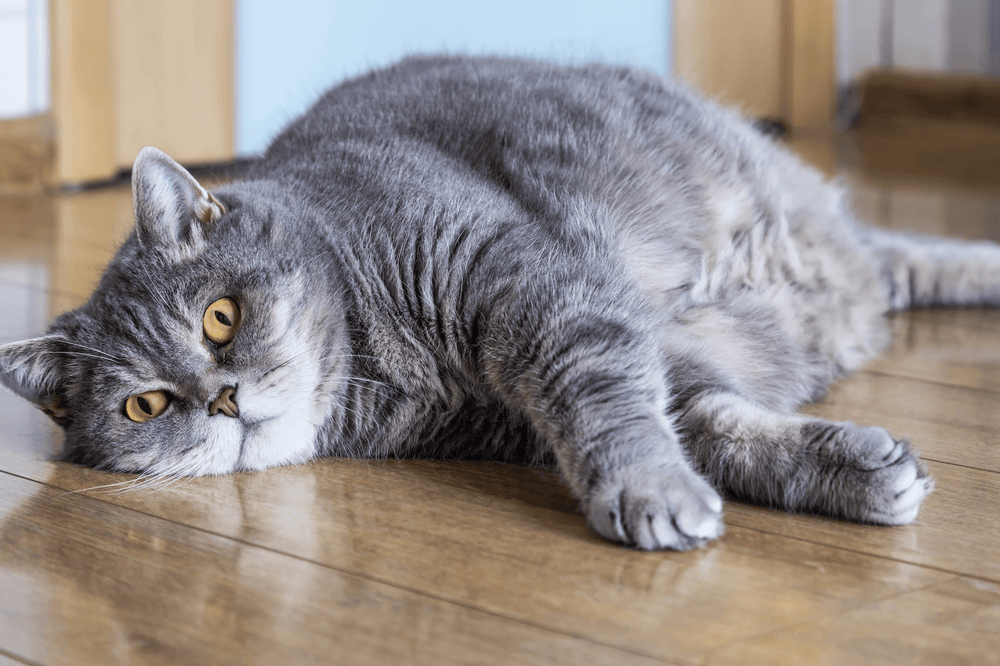
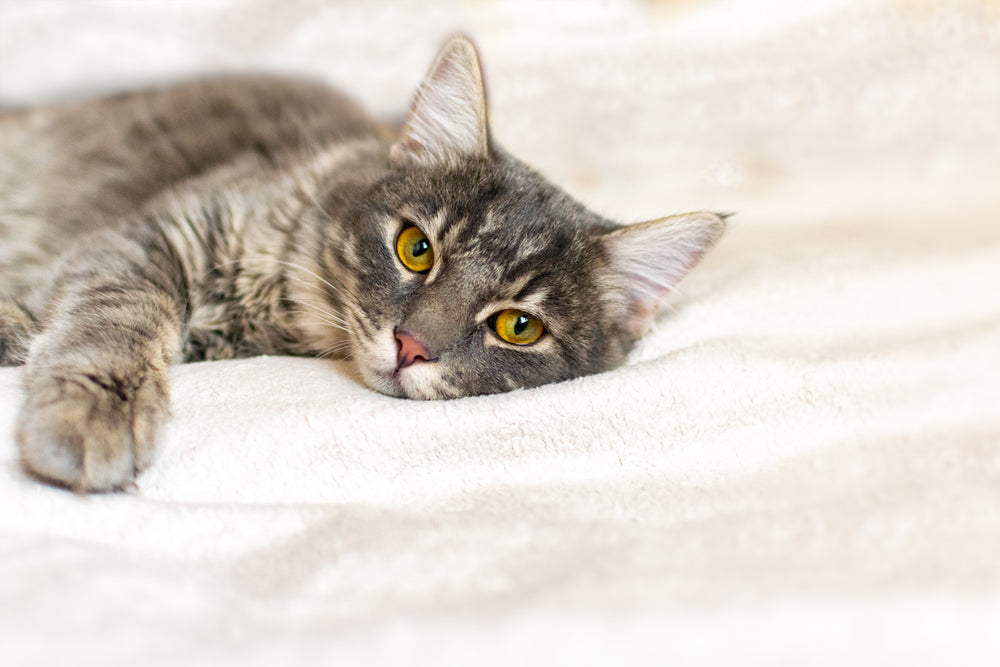
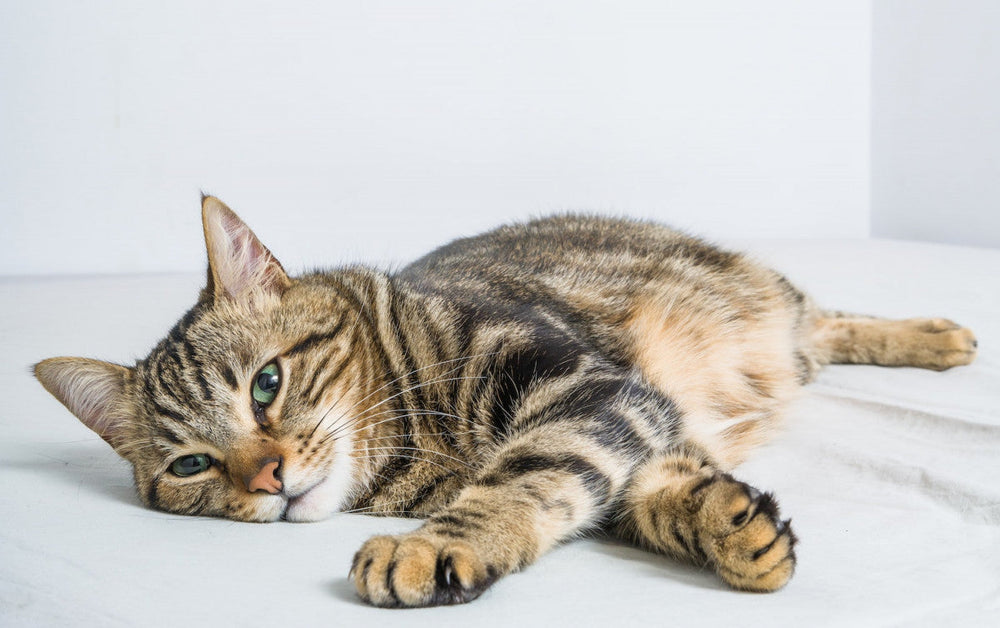


Leave a comment